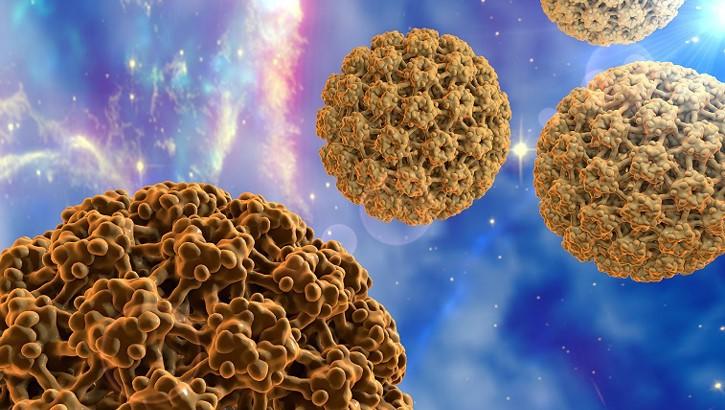APOBEC3-Induced Mutations in HPV 16 Viral Clearance
, by DCEG Staff
More than 50 percent of cervical cancers are caused by persistent infection with human papillomavirus 16 (HPV 16), however, it is not clear what factors contribute to the pathogenicity of HPV 16, since most infections are cleared. Tenure-track investigator, Bin Zhu, Ph.D., in the Biostatistics Branch, and senior investigator, Lisa Mirabello, Ph.D., M.S., in the Clinical Genetics Branch, and colleagues, conducted the largest HPV 16 whole-genome sequencing study to evaluate the contribution of genetic variation in HPV 16 to infection outcome.
They found that APOBEC3-induced mutations in HPV16 were associated with benign cervical infections. The findings were published February 14, 2020, in Nature Communications.
These results demonstrate that the HPV 16 genome, previously thought to be stable during an infection, can accumulate within-host somatic mutations during infection driven by APOBEC3, which is a group of human enzymes that fight infections at the cellular level by mutating genetic material in viruses. The investigators found that precancer/cancer cases had a lower percentage of HPV 16 APOBEC3 mutations compared to controls with benign or clearing infections, implying cervical infections of HPV 16 with APOBEC3 mutations were less likely to progress to cervical cancer.
In addition, Drs. Zhu and Mirabello, and colleagues, determined that APOBEC3 editing may have contributed to the evolution of HPV 16 lineages. Mutations in 6-41% of lineage-defining SNPs may have potentially been driven by APOBEC3, and greatly affected the most carcinogenic sublineages.
The study suggests that APOBEC3 may induce mutations that reduce the viability of HPV 16, resulting in viral clearance, and may also contribute to the genetic diversity of HPV 16. These findings contribute to our understanding of important, clinically significant biological mechanisms of HPV pathogenesis and evolution and may open new avenues for research.
Reference:
Zhu B, et al. Mutations in the HPV16 genome induced by APOBEC3 are associated with viral clearance. Nat Commun 11, 886. February 14, 2020. DOI: 10.1038/s41467-020-14730-1.
